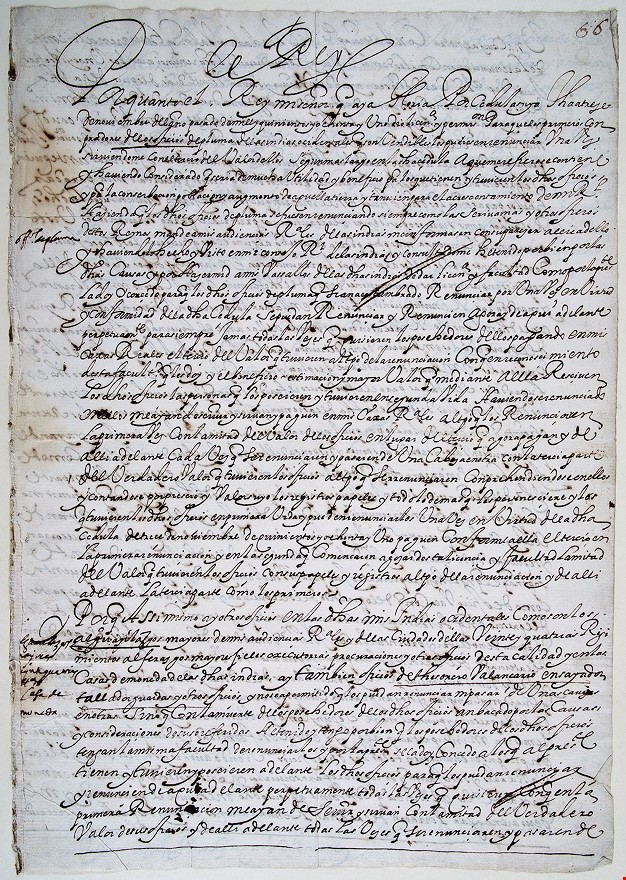[Sale of offices in the Spanish Empire]: Paraque de acqui en adelante se puedan renunciar en las Indias los oficios bendibles como se haze en esios Reynaos en la forma q[ue] aqui se contiene. Signed at the end by Gregorio Perez de Andrade.
PHILIP III OF SPAIN, (1606.)
£325.00
Please contact us in advance if you would like to view this book at our Curzon Street shop.
Folio (308 x 210mm.). 3 pages.
A royal decree relating to the right of holders of saleable posts to renounce them on certain conditions.The text begins with a reference to the late Philip II's decree (1581) authorising the renunciation of saleable posts, on condition that holders desirous of relinquishing them paid one third of their value into the royal treasury. This was the proportion fixed for the first surrender, but if the posts were taken up again and then renounced a second time, the surrender value was to be one half, reverting once more to one third in the case of each and every subsequent resignation. At first this privilege was withheld from holders of certain offices in the Treasury, though later it became applicable to them also on payment of one half on first retirement, and one third for any subsequent withdrawal.The regulations affecting these concessions were rigid and the penalties for their contravention were severe. On giving up office, the holder had, in the first place, to remain at his post for a further 20 days, and secondly he was under the obligation to register his renunciation within 70 days to the nearest Viceroy or Chief Official of the nearest Andiencia. If he decided to throw up his post whilst he was at sea, the notofication had to be handed in within 30 days of his landing, instead of 70. Moreover, within 4 years of his retirement, it was his duty to present to the nearest Viceroy, or other authorised official, the King's confirmation of his renunciation. The penalty for non-fulfilment of any of these conditions was the permanent forfeiture of the office. This 1606 decree was Philip III's attempt to make public duties more attractive by enacting that all saleable offices should be automatically renunciable: but one result was that many offices became hereditary after this since some fathers renounced in favour of their sons.On the sale of offices see: J. H. Parry, The Sale of Office in his Spanish Seaborne Empire, p. 208. In large black folder.
Stock Code: 44989




